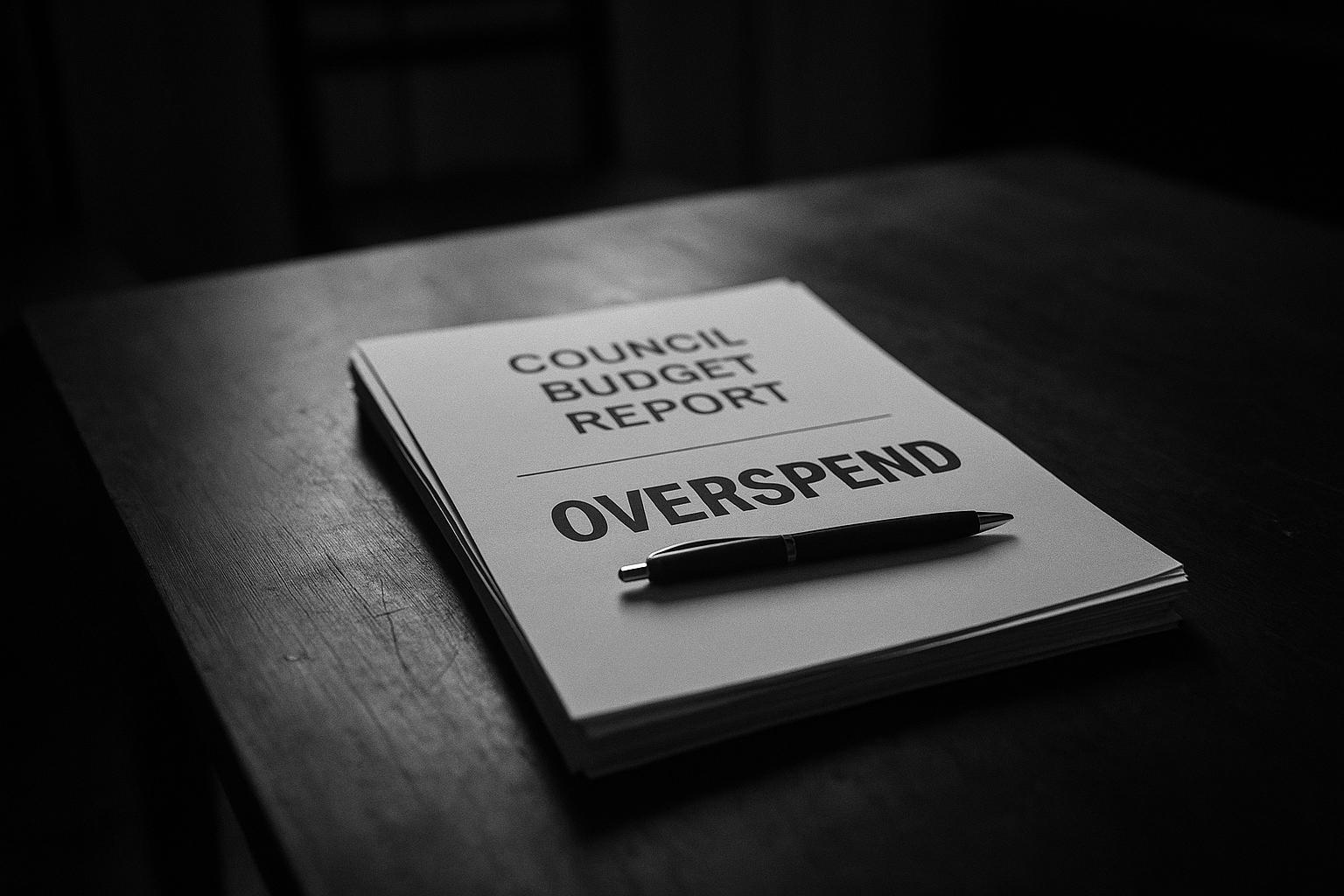Cash‑strapped Havering Council is already forecasting a budget overspend for the current financial year, projecting a £1 million shortfall after the first quarter and warning that it may need to draw on an £18 million “worst‑case‑scenario” contingency to remain solvent. According to the council’s latest report, pressures are concentrated in housing and adult social care, while the authority’s overall budget for the year, including contingency, stands at about £292 million.
The report cautions the outlook is precarious and that risks will be closely monitored as the year progresses.
The first‑quarter projection breaks down into a potential £1.8 million overspend on housing and £2.3 million on adult social care, with a further £1.1 million pressure on the council’s “ageing well” programme and £1.5 million against resources. The document also flags a shortfall arising from temporary accommodation: the council expects 23 families to enter costly hotel or B&B placements in September, a move it estimates will add roughly £500,000 to housing costs. Offsetting some of these pressures, planners report a projected £3.7 million underspend against the “place” portfolio, helped by additional income that includes an extra £1.5 million generated after increasing fixed‑penalty notice charges.
These latest projections sit on the back of significant, recent overspends. Last year Havering exceeded its housing budget by £6.6 million and its wider “people” budget — which covers social care and children’s services — by more than £20 million. Council financial returns for 2024/25 show services overspent by around £21.6 million and a total variance of about £30.4 million against the original budget before exceptional support measures were applied. The outturn appendix makes clear that a capitalisation direction was used to manage those gaps, and that a central contingency pot was held in reserve for emerging risks.
The authority’s fiscal squeeze has already attracted central government intervention. In February the government authorised a package of exceptional financial support that allows a number of councils, including Havering, to access up to roughly £88–89 million to manage acute pressures. The council says the funding can be drawn down as required and will operate similarly to a line of credit. The government framed the measure as a partnership with councils facing acute strain, while local government bodies have warned such short‑term support risks entrenching long‑term indebtedness unless structural reform follows.
Havering’s elected leadership has sought to formalise a path through the crisis. In approving its 2025/26 budget the council agreed a 4.99% rise in council tax, a 2.7% uplift in fees and rents, and the use of an £88 million capitalisation direction as contingency against a worst‑case scenario. The budget package — carried through in a narrow vote — also included proposals to close three libraries as a cost‑saving measure, a move that proved politically controversial and was approved by a single vote at a council meeting in February. Council leaders stress the choices were intended to avoid still larger council‑tax increases while they continue to press for reform of the funding formula from central government.
Temporary accommodation costs remain a particularly acute pressure. Local reporting shows the council spent more than £560,000 on hotels and B&Bs in a single year as homelessness placements surged, with projections for the total to exceed £700,000. Inspectors and councillors say families have sometimes remained in nightly lets beyond the statutory short‑term expectation, driving both human distress and expense. The authority has set out plans to build a 74‑unit hostel and continues to lobby ministers for additional resources to reduce expensive nightly placements.
The pattern in Havering reflects wider themes across London and elsewhere: rapidly changing demographics, increasing demand for social care and temporary housing, and what councils describe as long‑standing underfunding from central government. The government’s intervention was presented as a necessary, short‑term stabiliser; critics including regional local‑government bodies have cautioned it is not a substitute for the kind of sustained funding reform many boroughs say is needed. The council’s own report states it is “currently in a period of intense financial pressure as a result of long‑standing government underfunding at a time of rapid demographic change and growth,” and adds that “with no substantial change to funding arrangements for 2025/26, while the population continues to grow, this unsatisfactory situation has persisted.”
For now, Havering’s finance team says the forecast will be closely watched over the coming months and that figures remain subject to change. The council points to management actions already taken — including the closure of three libraries and cuts to cultural spending such as town‑centre Christmas lights last winter — as part of a broader package aimed at stabilising its finances while it seeks longer‑term relief from central government.
📌 Reference Map:
##Reference Map:
- Paragraph 1 – [1], [4]
- Paragraph 2 – [1], [5]
- Paragraph 3 – [4], [7], [1]
- Paragraph 4 – [3], [2], [1]
- Paragraph 5 – [2], [6]
- Paragraph 6 – [5], [6]
- Paragraph 7 – [3], [2], [1]
- Paragraph 8 – [1], [6], [4]
Source: Noah Wire Services
